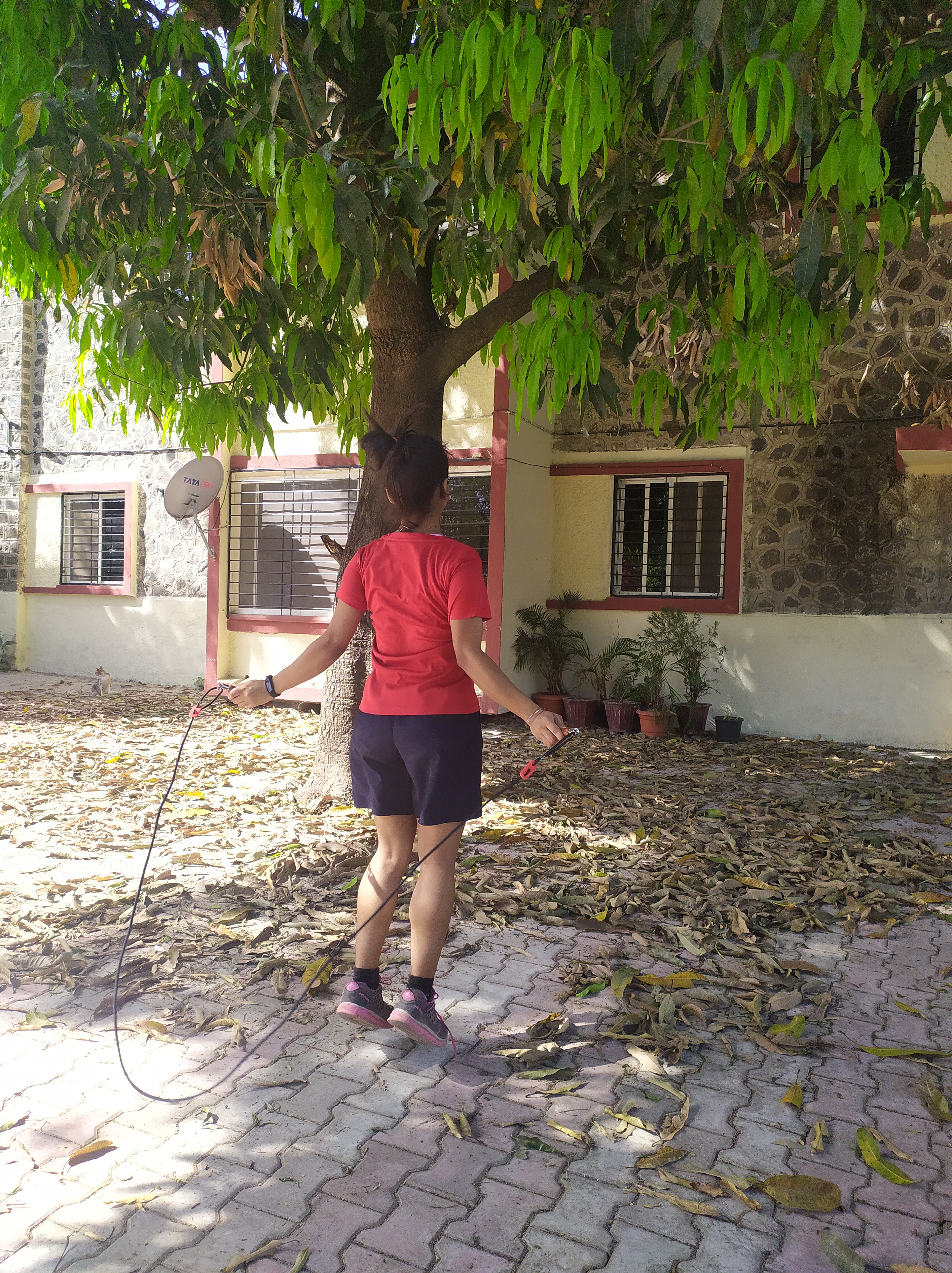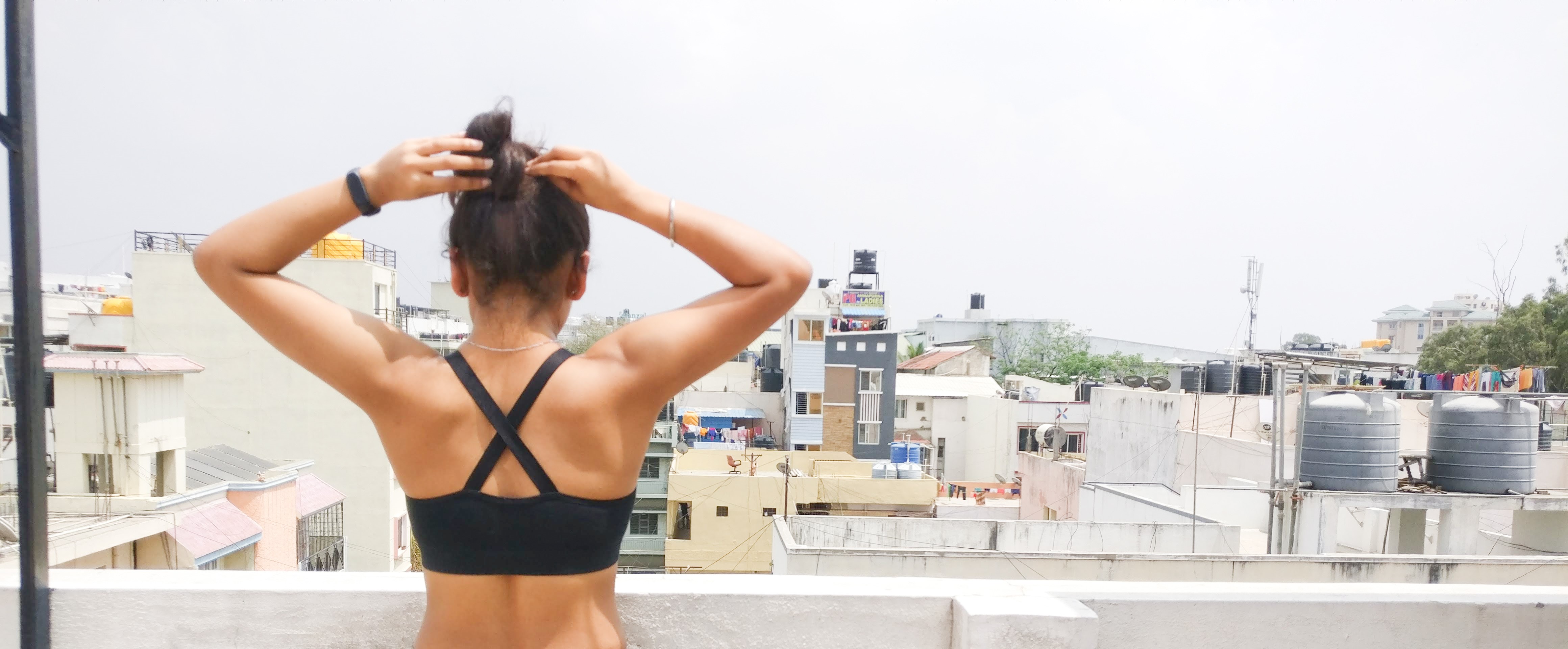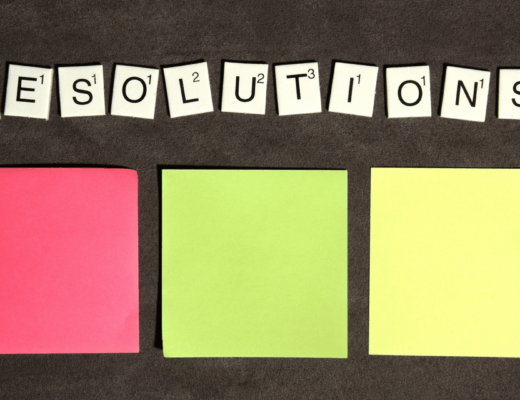“Consistency is king”, these three words say it all. If you want to shine in any field, you have to be consistent. You can’t just sit in one place and dream about it. You have to get up and move. Fitness is one such field that requires a lot of dedication, commitment, consistency, patience, and hard work. You start and hustle, hustle and hustle to get the body you want. It’s not about days, weeks, or years, It’s the lifetime process where you learn, learn, and learn. You can’t get the body you always dreamt of by sitting on a couch. But, what about the rest days?
These days help you build, and they should never be ignored. Hitting the gym is important, eating healthy is important, rest days are important too. Some days off will help you get back stronger than before. As they say “comeback is stronger than the setback” . Few of them are planned and few of them aren’t. You just run away from conditions where you’re forced to sit at home( even if you don’t want to ). Just like the pandemic which has set the world on fire and everything is closed. Even the place where you spent most of your days – Gyms.
All the gym-goers or I must say fitness enthusiast knows the pain of those three words “Gyms are closed”. C’mon it’s for us and we have to understand the situation and act accordingly. Because, after all, we have to keep in mind that health and fitness are really important. And, also we are the ones who strongly believe that health is the most valuable asset. So, how can we ignore it?
Whatever is your goal. Be it a weight loss or muscle building. You can’t ignore the power of rest days. Let’s get right to the point that why Rest days are really important and what can we do about the unplanned ones? Make the most out of them and get back stronger.
WHY IT’S IMPORTANT TO TAKE THE DAYS-OFF?
- · ENHANCES PERFORMANCE:
We work out to stay fit and active. But, what if that extra strain you’re putting on your body is getting into the ways of your daily activities. What if that extra load is not benefiting you at all. Our aim is to live a healthy happy life. But, overdoing anything will not do any good. More is not always better. When you don’t get enough rest, it can be hard to do normal activities. Even if you push yourself, overtraining can decrease your performance and you may not be able to feel the energy to do an extra rep or run the extra mile. Rest days will help you increase energy and prevent fatigue, which prepares your body for the hard workouts.
- MUSCLES ARE BUILT WHILE RESTING:
If you want to lose that extra fat and build muscle. Whatever your goal is, muscles play a crucial role in building the body you want. Greater the lean body mass, the greater the calories you burn and the lesser the fat. Consistency is important, but muscles are built while resting, not while training. So, adequate rest are really helpful. We have heard so many statements floating around the fitness world like: Muscle isn’t built in the gym, but in kitchen and bedroom. During exercise you don’t build any muscle, you break it down. The building happens during rest days. So, if you want to make the most out of your hard sweat session, take a break and allow your muscles to rebuild.
- GLYCOGEN RESTORATION:
The body needs the energy to perform daily tasks. Glucose is stored as glycogen n the muscles and liver. Glycogen in the muscles breaks down during exercise to give energy. Exercise depletes the muscle glycogen level, which in turn increases muscle fatigue and soreness. So, give your body some rest and good food to restore the lost glycogen level. Muscles need glycogen even if you’re not working out. By getting adequate rest, you allow your body to recover and prevent muscle fatigue and soreness. Don’t overload carbs; keep your diet clean and balanced.
- · INJURY PREVENTION:
Yes dear! Overtraining can increase the risk of injury. Over-training happens when you put too much strain on your body without providing it the rest and recovery days it needs. The damage due to overtraining isn’t just limited to an increased risk of spraining your ankle or tearing a tendon. It’s much more than that; It will also have adverse effects on your strength, gains, immune system, and mood as well. Your body will speak to you in various ways; you may not feel like lifting your body from the couch for weeks and maybe months depending on how severely you’ve over-trained. Give your body the rest it needs and get back to the gym, stronger and better.
- · SLEEP WELL:
Sleep is important for recovery. It’s the time when your body rebuilds and prepare itself for the next day. But, overtraining can play with your sleep and affect your performance as well. Physical activity results in the release of energy-boosting hormones like cortisol and adrenaline. But, excess of them can make it hard for you to get that quality sleep, which will worsen the fatigue and exhaustion. Rest days will help you get them on track and balanced state. A good sleep will help you give your best in daily routine.
- · MENTAL HEALTH:
Mental and physical health goes hand in hand. One is nothing without others and to live your life to the fullest, you need to take care of them. Over-training can take you to the point where you’ll not even feel like getting up from the couch and hit the gym. So, the rest period can help you rekindle your hunger for exercise and prevent mental fatigue. So, what can you do to get your mind on track? Just like workout goals or body goals, set your rest goals as well, where you allow your muscles to relax and recover. Limit the physical activity on your rest days and practice yoga or stretching to improve circulation and flexibility.
These are a few benefits of rest days. More is not always better, when it comes to exercise. Sweating might be your favorite hobby, but rest days should also be your priority if you want to enjoy the long term benefits of a workout. Take that rest and remember that taking the days off is not about being lazy, but nourishing your body to perform better every single day. Give yourself some break and use that time to read a book or binge-watch your favorite series. Go and meet your friends. If you still want to add some physical activity than go for a run with friends, rather than doing hard intensity workouts. You don’t have to punish yourself for taking the days off. Exercise is not a punishment, it’s a reward. Nourish your body with good food and don’t forget to listen your body in time of needs. Your body will speak to you in different ways, don’t ignore. If you overlook the signs, then you might have to face various health problems which can also put you on bed for longer time. So, it’s always better to give your mind and body adequate rest at proper times. Rest days can be planned or unplanned. Planned ones are always better than the unplanned ones since you plan your activity around it, but the unplanned ones are usually sudden just like the pandemic. So, will these days off put all your hard work in vain? Let’s explore more about this.
WHAT HAPPENS WHEN YOU STOP WORKING OUT?
All the gym-goers will be worried about the gains getting lost during the pandemic which has put them onto the unplanned rest. All the gyms are shut down, so will you lose all your gains? Will those hours of hard work will just go in vain?
NOOO……
The impact of days off varies depending on the level of fitness, age, and sex.
We can classify them in the groups of athletes and non-athletes. Yes, the impact on both of them differs.
Who are athletes?
A loose definition of athletes is someone who has exercised 5-6 times a week for more than a year or someone who has exercised a few times a week but have been doing so for years. They lose less overall muscle strength as compared to non- athletes.
Who are non-athletes?
Someone who has not exercised for 5-6 times a week or hasn’t been exercising regularly for long falls into this category. And, they’re more prone to losing overall muscle strength as compared to the athletes.
So, now you know which category you belong to, let’s dig deep into it and understand the game of losing and gaining.
· CARDIOVASCULAR FITNESS:
We all are familiar with the long term benefits of cardiovascular exercises and how important it is for a healthy heart. Breaks hit the cardiovascular fitness first. It’s the performance factor that is reduced the fastest. This can start within a few days of inactivity and beginners will find their aerobic fitness dropped to zero after a few weeks of inactivity. You use your muscles less during cardiovascular activities. So, you may notice some drop in your cardiovascular fitness like you will need a few extra minutes to finish that 5k run or you’ll find yourself out of breath after climbing that flight of stairs. So, what can you do about it?
You can always add some activity in your daily routine to keep yourself active. Do household chores like washing dishes, laundry, and gardening or just go for a walk with your dog. You can do these small activities on your rest days without straining your muscles. Or if it is the unplanned break, try home-based workouts like high knees, jumping jacks, skipping, mountain climber, etc. Don’t get stick to the couch for so long. Keep moving, use those commercials to finish your other tasks or remind yourself to do a quick session of these home workouts. These small quick sessions will help you preserve your cardiovascular fitness.

MUSCLE STRENGTH:
Building muscle is a slow, costly process. It requires time, consistency, discipline, patience and a good diet. And, the good news is, once gained your body doesn’t let it disappear so easily. Glycogen is a type of carbohydrate which is stored in muscle and contributes to its overall size. When you stop training, first thing that happens is there’s a drop in muscle glycogen level. The drop increases with time, causing muscles to shrink about 10 percent over a month. So, you can safely take a break for a week or two, without losing the muscle mass. After three weeks, you may lose some muscle (not enough to notice any difference). And, later you can notice a considerable drop in muscle mass. But, once you hit the gym again, you’ll regain muscle much faster than when you first started training.
What can you do to preserve the muscle and strength?
Of course, we don’t want to lose all the muscle and strength we have gained so far. So, there are few things you can do to keep up that hard work. Focus on your diet and keep it rich in protein. Eat enough calories every day to maintain your weight. Your body just can’t rebuild and grow muscles if you’re in calorie deficit (eating less than you require). Strength training is required for muscle growth, which is why we lose fat and build muscle even while dieting if we also lift weights. But, once we stop lifting weights, chances of muscle loss increases if we’re in calorie deficit. Keep your diet rich in protein, and eat 0.8 to 1 gram of protein per pound of body weight. Protein will also help you to keep the calorie in check as it is more satiating than carbs or fat. This will help you avoid unwanted weight gain during the days off. Most of them think that muscles will get converted to fat if they stop working out, it’s the extra calories that will make you gain those extra pounds.
Keep moving. The fastest way to lose muscle is to move as little as possible. Strength training isn’t the only thing that helps you build muscle. You can work your muscles even while doing daily activities. Small daily movements will provide a decent muscle-building stimulus and if you stick to the couch for too long, you’ll lose those muscles much faster.
Exercise promotes good sleep. Few weeks of inactivity can affect your sleep patterns. A night of good sleep helps you repair and rebuild the muscles damaged during exercise. Lack of exercise results in higher energy levels in body and reduce the need of good sleep, which could eventually lead to restless or insufficient sleep. Adding little activity can help you improve your sleep patterns.
TAKEAWAYS:
- Add little activity to your daily routine and avoid being a couch potato. Small movements can help you improve your sleep pattern.
- Don’t sit in one place for too long. Do household chores or a small workout session. Use those commercials effectively and challenge yourself with different physical activities like jumping jacks, skipping, push-ups, high knees, etc.
- Eat well! The biggest blunder one can do is to get back to old eating habits and sitting for too long. A common mistake people make when they stop lifting weights is they stop doing any kind of exercise and eat whatever they please.
- The gym is not the only place to work out. So, home workouts come to the rescue. Don’t use this excuse to stay inactive. Also, check the link and check out the apps listed there to stay fit at home. These apps will help you eat well and workout even on lockdown days. Keep all your excuses aside and get back stronger and better.
- Eat good food and practice mindful eating. Mindless snacking can result in weight gain, but some brands will help you indulge guilt-free. Check the link and don’t let the lockdown ruin your diet.







No Comments